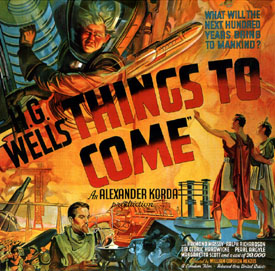Kevin Salwen, a writer and entrepreneur in Atlanta, was driving his 14-year-old daughter, Hannah, back from a sleepover in 2006. While waiting at a traffic light, they saw a black Mercedes coupe on one side and a homeless man begging for food on the other.
“Dad, if that man had a less nice car, that man there could have a meal,” Hannah protested. The light changed and they drove on, but Hannah was too young to be reasonable. She pestered her parents about inequity, insisting that she wanted to do something.
“What do you want to do?” her mom responded. “Sell our house?”
Warning! Never suggest a grand gesture to an idealistic teenager. Hannah seized upon the idea of selling the luxurious family home and donating half the proceeds to charity, while using the other half to buy a more modest replacement home.Yep. These idiots sold their $1.6 million dollar house and donated half the money to charity.
Then they wrote a book about it.
I'm disgusted. Here is why:
1. That little girl has a GREAT topic to write about in her admissions essay for Harvard, Yale, Stanford, Georgetown, etc. I would kill for a great topic like that. As long as she isn't a complete knuckle dragger, she's virtually guaranteed acceptance. Is it worth $800k to get into a top school? I don't know, it seems like you'd be better off making a donation to the school of your choice - but - I suppose you need access to an alumni network to know who to talk to about a donation and you still risk the girl not getting accepted to the school you made the donation to whereas with this method she's got a all access path she can use to apply to many schools.
2. Whenever Earnest Hemingway wrote a hero the character would often perform selfless acts without the desire for recognition. These bozos didn't have that problem. If you're really such a hero, why don't you donate the money anonymously? But no, not in America, not in the year 2010. Today, you do something "good" (I'll to that in a minute) and then you write a Oprah Book about the event. I'm going to go out on a limb and say between the advance, royalties, maybe an eventual movie deal (Tom Hanks and Sandra Bollock, I say), plus their daughter's acceptance to a Ivy League school I bet they recouped most of that $800 grand.
3. Oh, and the economics of the whole thing is just ridiculous. Why not say to your daughter, "How did the guy in the Mercedes get the Mercedes? What do you think he does for a living? Do you think he's maybe made better choices then the bum?" The answer to all those questions is that the guy in the Mercedes was almost certainly a highly educated professional who invested many years into becoming proficient at something whereas the bum probably wouldn't know what to do with money if you gave it to him. But you won't get into Harvard writing that in your admissions essay.
What this family did was a get-rich-quick-scheme in reverse.
Get rich-quick-schemes are dangerous.
The money they donated to a charity in Ghana would have done more good if it had been invested in a business in Ghana.
But more important is the implication that there is a "simple" solution to poverty. The implication is that if everyone would just cut their consumption in half poverty could be eliminated and the ECONOMY would be sated by the sacrifice. This theory was recently pilloried in a source far more scholarly and reputable than the NYT's Op-Ed page.
The only solution to poverty is to grow the economy. You cannot grow the economy easily. Growing the economy requires investment in companies that invest in innovation and new technologies. Growing the economy also requires years of education in science and mathematics.
